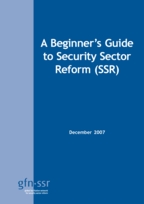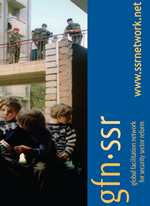HURST HANNUM
While ‘peace’ and ‘justice’ advocates share ultimate goals, the short-term concerns and strategies of practitioners in the two fields may differ dramatically. The potential contradictions of pursuing peace and justice are a particular challenge in the context of large-scale conflict, whether internal or international. Both mediators and human rights advocates could use more humility and less arrogance, since neither group can create world (or even local) peace on their own. This article argues that the two disciplines need to build on their shared values of impartiality and independence, while maintaining the distinctive features of each approach, including their concern with ensuring that the less powerful are adequately protected and represented. Neither group should be tolerant of injustice. It concludes that collaboration, or at least mutual appreciation, is certainly feasible, particularly as greater empirical knowledge is gained about both the limits and possibilities of outside interventions.
Perhaps because we wish that it were true, advocates working in fields that might very broadly be called ‘peace’ (conflict resolution, conflict management, diplomacy) and ‘justice’ (human rights, transitional justice, accountability) often assume that peace and justice are always compatible and complementary. While this may be true with respect to ultimate goals – we all want both – the short-term goals and strategies of practitioners in the two fields may differ fairly dramatically. Recognition of those differences is a necessary first step to ensuring that the theoretically compatible goals of peace and justice may be pursued with the least possible tension, whether in the short or long term.1 The potential contradiction of pursuing peace and justice simultaneously is a particular challenge in the context of large-scale conflicts, whether internal or international. The peacemakers generally have a clear idea of their immediate task, which is to stop the violence and pave the way for negotiations. But where does human rights fit in negotiation, mediation or conflict resolution strategies? More specifically, how do human rights norms affect issues such as who comes to the table, whether human rights must be included as part of any formal peace agreement, how human rights will be monitored in the post-agreement period, where human rights fit into post-agreement capacity-building, and how human rights affect long-term rule of law issues?









